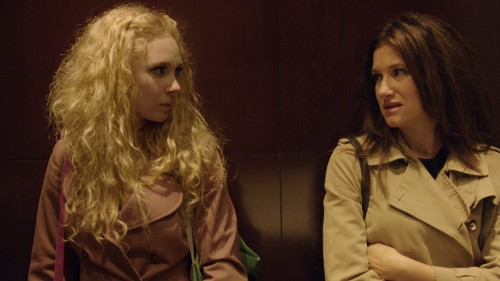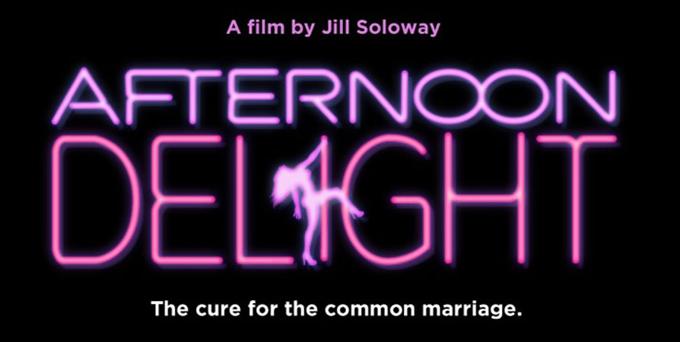
This is a guest post by Leah Rudick.
I recently made my first foray into screenwriting. Very exciting, no? A few months ago, I started writing a script about a woman in her early 30s who finds herself suddenly living in New York City, wading through the murky waters without direction, a passive observer in a sea of eccentric, cruel and hilarious characters. A woman searching for her purpose. Who’s excited? Did I pique your interest? Is that a resounding YES?! I wrote about 40 pages, got stuck, and showed it to my intuitive and brilliant better half who read it, gave me some very generous compliments, and then asked, “Why don’t you give Sarah [my heroine] some agency? What does she want? Is there a way for her to be bolder instead of having all of these things happen to her? A way to let her be the ignition for whatever construction or destruction occurs? Can we watch her be the cause rather than the reaction?” They were great questions. Why was I interested in writing something about a woman who seemed comfortable being so inactive? Who was satisfied sitting back and observing, judging, but paralyzed from actually stepping in and taking part.
It’s a manifestation of a struggle I’ve always had, the fight against my natural instinct to be the shy, passive observer. It’s something that my inspired 78-year old acting coach worked tirelessly to drill out of my head: “Leah, what do you want in this scene? You can’t exist in this gray area. It’s boring!” It’s an issue that I notice in many films that I’ve seen and worked on. The female character is the watcher, the muse, the victim, the object. And while I have been easily able to detect this trope in the work of others, I was totally oblivious to it in my own work.
When I watched Jill Soloway’s most recent feature, Afternoon Delight, I was, in the truest sense of the word, delighted. It was everything I wanted in a movie: Hilarious, tragic, deeply moving, beautifully shot with incredibly grounded and brilliant performances across the board. The story follows stay-at-home mom Rachel (Katherine Hahn) who takes in a young stripper named McKenna (Juno Temple) in an effort to save her and also to distract herself from her own upper middle class malaise.
This is a film about women’s agency, and watching it was an eye opener for me. The movie is so bold and colorful and also so feminine in a more real way than I think one often sees in film, even sometimes in those made by women. It is emboldening to watch, because it has been created by the voice of a woman who is seemingly unfettered by the much discussed “male gaze” in filmmaking.

I was lucky enough to listen to Jill Soloway speak recently at a small gathering to discuss a new filmic voice for women, hosted by the genius and innovative Emily Best, CEO of the crowdfunding and distribution platform Seed & Spark. Soloway spoke so eloquently about her process and about women’s opportunities and struggles in the film industry. She was so engrossing and inspiring to listen to that there was a palpable feeling of magic in the room. One of the valuable lessons I took away from our discussion was about her career turning point — from producer to filmmaker — is that she realized that no one else was going to make it happen for her. It makes me wonder how many other women and men are waiting for permission to make their masterpieces, and license to make the characters within them bold, alive, and human.
I’m grateful she had the realization, because Afternoon Delight is masterful at defying the norms of the comedy genre in such an incredibly subtle way. This conversation of agency begs another discussion about which genres best lend themselves to this kind of work. It is one thing to make an action film with a female lead and make her active and in control and awesome (I am so excited to see the Seed & Spark funded Sheila Scorned, a “grindhouse short starring a quick-witted stripper who’s out to get even with the men in her way” because it looks badass), but what about when the genre is one that typically does not allow for female agency?
I produce a web series with my comedy duo, Skinny Bitch Jesus Meeting, called Made To Order about two sisters who start an underground food delivery service. It is a sort of high octane comedy about two women who forcefully throw themselves into a world they know nothing about at the expense of everything. With my very brilliant comedy partner, Katie Hartman, it has been thrilling to create two characters who do rather than watch and manage this in a completely unhinged way.
I love the idea of finding more ways to write female characters with agency in every genre, across the board. This awareness and need for these types of character in creative work has had a profound effect on my own writing and I know that I’m not alone in this sentiment. When we start allowing characters to do, rather than to simply watch others do, worlds open up and we can actually started having fun.
Leah Rudick is an actress, writer and comedian. Film credits include Cut to Black (Brooklyn Film Fest Audience Award), Lost Children (Desperate Comfort Prod., IFP Lab Selection), Bloody Mary (Sci-fi channel), Kids Go to the Woods, Kids Get Dead (Darkstar Entertainment), Prayer to a Vengeful God (Insurgent Pictures) and Jammed (Runaway Bandit Productions). She can be seen on the popular web series High Maintenance and on the webby-winning youtube channel Barely Political. She is a founding member of Lifted Yoke Productions, and is currently in pre-production for their feature dramedy, Sweet Parents. Their first short film, Blackout, can be streamed at Seed & Spark Cinema. She is a contributing writer to Reductress.com. She is half of the sketch comedy duo Skinny Bitch Jesus Meeting (Edinburgh Fringe, The PIT, UCBT, NY Fringe Fest) and co-creator/co-star of their upcoming web series Made To Order (madetoorderseries.com).






